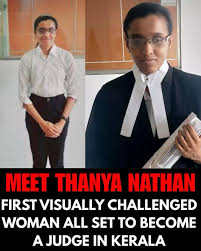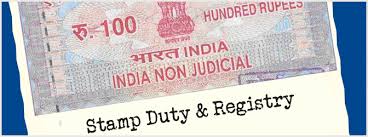Sultan Singh, J.
(1) This revision petition challenges the judgment and order dated 19th January, 1980 of the Additional Controller, Delhi dismissing the petitioner''s application for leave to amend the eviction application. Briefly the facts are that the petitioner-landlord filed an application for eviction of the respondent-tenant u/s 14(l)(c)of the Delhi Rent Control Act, 1958 (hereinafter referred to as ''the Act'') on 21st January, 1977. On an application by the respondent he was granted leave to contest. He filed the written statement. The landlord examined his evidence and the respondent also examined most of his evidence. On 30th August, 1979 the petitioner made an application under Order 6 rule 17 of the CPC (hereinafter referred to as ''the Code'') seeking leave to amend the eviction petition by adding a ground of eviction u/s 14(1)(h) of the Act alleging that the tenant has now acquired vacant possession of the residence at C-24, Ashok Vihar Phase I, Delhi and has shifted therein along with his family members. This application was resisted by the respondent. The Additional Controller dismissed the application on the ground that the same was not maintainable in proceedings u/s 25B of the Act.
(2) The question for decision is : Whether after the grant of leave to defend, a landlord can be permitted to amend the eviction application with a view to add a ground of eviction in proceedings u/s 25B of the Act? Chapter I I I A in the Act was introduced with effect from 1st December, 1975 by Act is of 1976 for summary trial of eviction application filed by a landlord u/s 14(l)(e)or Section 14A. Section 25B provides that such an application shall be dealt with in accordance with the procedure prescribed therein. Sub-section (4) of Section 25B provides that the tenant shall not contest the application for eviction unless he seeks leave to contest the same by filing an affidavit. It provides that in default of obtaining such leave, the statement made by the landlord in the application for eviction shall be deemed to be admitted by the tenant and the application shall be entitled to an order for eviction on the ground aforesaid. Under what circumstances leave to defend can be granted is provided in sub-section (5) of the said section. Sub-section (8) read with the proviso provides that no appeal or second appeal shall lie against an order for the recovery of possession of any premises made by the Controller in accordance with the procedure specified in the section. The proviso however enables the High Court to satisfy itself that the order made by the Controller was according to law. Sub-section (10) of Section 25B of the Act reads as under :
" SAVE as otherwise provided in this Chapter, the procedure for the disposal of an application for eviction on the ground specified in clause (e) of the proviso to sub-section (1) of Section 14, or u/s 14A, shall be the same as procedure for the disposal of application by Controllers".
(3) According to this sub-section an eviction application even u/s 14(1)(e) of the Act is to be tried by the Controller according to the procedure prescribed for trial of other eviction applications except to the extent that the Controller shall also follow the procedure mentioned in Section 25B of the Act. In other words, it would mean that if leave to defend is not granted to the tenant there would be an order of eviction against him under subsection (4) of Section 25B.of the Act, an-if leave to defend is granted to a tenant, the eviction application whether -under Section 14A or u/s 14(l)(e)of the Act would be tried as any other eviction application. It is well known that the Controller has power to grant leave to the parties to amend their pleadings. After the grant of leave to defend the eviction application would be tried as any other eviction application and Therefore the application for leave to amend would be maintainable and would require the adjudication by the Controller whether the amendment should be allowed in the facts and circumstances of the case. In view of sub section (10) of Section 25B of the Act, I am of the view that once leave to defend is granted to a tenant the parties are entitled to seek leave to amend their readings. In other words, in the present case. the petitioner-landlord is entitled to seek leave to amend the eviction application. The Controller was, therefore. wrong in observing that in proceedings u/s 25B of the Act additional ground of eviction cannot be added by amendment. He was wrong in holding that the application for leave to amend was not maintainable. 1. Therefore, hold that after the grant of leave to defend, a landlord is entitled to amend the application for eviction.
(4) The next question is whether in the facts and circumstances of the present case leave to amend should be granted or not. Initially the petitioner filed the application seeking eviction u/s 14(l)(e) of the Act. The case of the petitioner-landlord is that after the filing of the eviction application the respondent-tenant acquired vacant possession of the residence and shifted therein along with the family. This ground of eviction has arisen subsequent to the filing of the eviction petition. In Smt. Abnash Kaur v. Dr. Avinash Nayyar & Others, 1974 R.C R. 350 it has been held that the Controller has the power and jurisdiction to allow an amendment to add a new ground of eviction which was arisen subsequent to the filing of the eviction petition and if it is different from the ground on which the eviction petition has been filed. In the Full Bench case an application for leave to amend was allowed by the Controller. The tenant filed a petition under Article 227 of the Constitution of India challenging the order of the Controller allowing amendment on the ground that the same was without jurisdiction and beyond the scope of Order 6 rule 17 of the Code. The Full Beach rejected the contention of the tenant and maintained the order of the Controller granting leave to amend the eviction application by adding the new ground which had arisen subsequent to the filing of the eviction petition. In view of this Full Bench judgment the proposed amendment is allowed to the petitioner-landlord.
(5) The present revision petition was filed by the petitioner u/s 115 of the Code read with Article 227 of the Constitution of India. Learned counsel for the respondent submits that no revision u/s 115 of the Code is maintainable as the Controller who passed the impugned order is not a court. The objection has force. The Additional Controller is not a court within the meaning of Section 115 of the Code. Learned counsel for the petitioner however submits that the Additional Controller has failed to exercise jurisdiction vested in him and this court should exercise the power under Article 227 of the Constitution of India. From the impugned order it is clear that the Additional Controller by holding that the application for leave to amend was not maintainable, failed to exercise Jurisdiction vested in him. The Controller has jurisdiction, as already observed, to grant leave to a landlord to amend the eviction application by adding a ground of eviction. I am, Therefore, of the view that it is a fit case where I should exercise the powers of Superintendence under Article 227 of the Constitution.
(6) I, Therefore, accept the revision petition and set aside the impugned order dated 19th January, 1980 dismissing the petitioner''s application for leave to amend as being not maintainable. The application for leave to an. end as proposed by petitioner is allowed subject to payment of Rs. 100.00 as costs. Parties are directed to appear before the Additional Controller on 29th March, 1982 on which date the petitioner-landlord is directed to file an amended application for eviclian and pay costs Rs. 100.00 to the respondent. No order at to costs in this revision petition.

